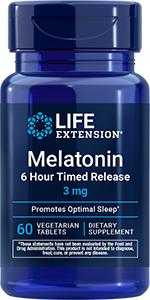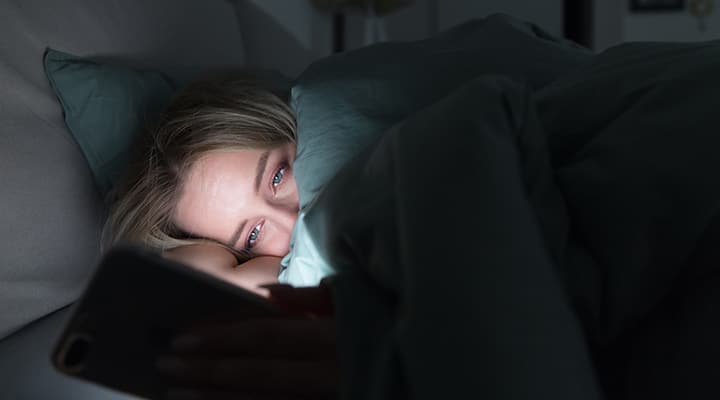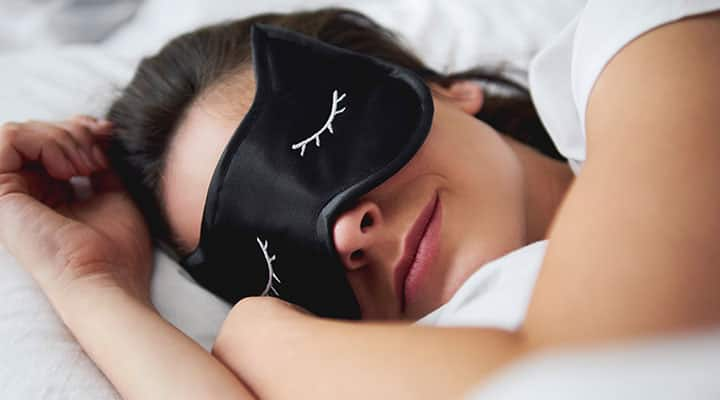
How to Get Better Sleep: A Helpful Guide
Published: March 2021
Your bed: it's your hardest goodbye and happiest hello. But sometimes when your head hits the pillow, you don't drift off to dreamland as easily as you'd hoped, setting off a vicious cycle: tonight's tossing and turning will leave you feeling groggy and sluggish tomorrow.
But you don't have to take a bad night's sleep lying down! Luckily, we have plenty of tips for falling asleep faster, staying asleep all night…and waking up ready to take on the day.
DO: Set the mood
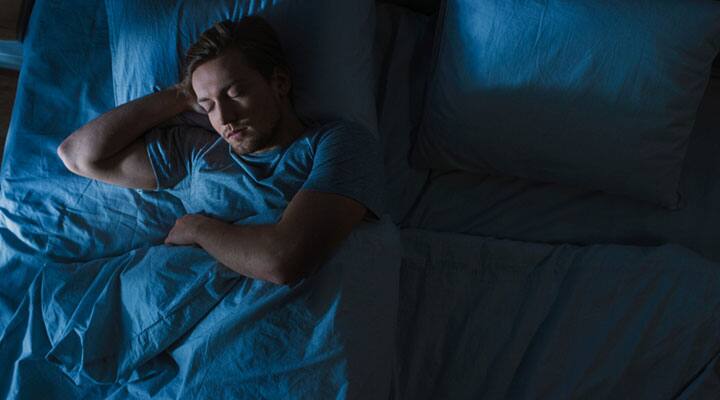
If your bedtime routine simply consists of brushing your teeth and changing into your pajamas, you could be selling yourself short on a good night's sleep. It's important to signal to your body and brain that it is time to rest.
Set your bedroom and body up for sleep success by taking a calming shower or bath before bed— using warm water will help soothe your skin and help your muscles unwind and relax.
Next, turn out all lights and draw your curtains closed to create a calming atmosphere and signal to your brain that it is time to sleep, while also blocking out light from outside that could wake you up prematurely. Tune out distracting noises by incorporating soothing sounds or calming music.
DON’T: Work up a sweat
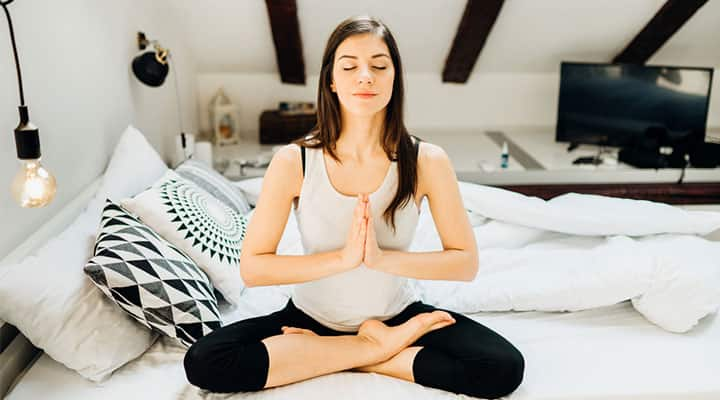
Exercise is important—there's no doubt about it. But perhaps your nighttime sweat session is keeping you up at night. Make sure you are avoiding high intensity exercise in the hour before bed, so your heart rate levels stay at normal levels and your body has time to cool down from your aerobic activity.
That doesn't mean you should remain sedentary, however. Doing some simple stretching or light exercise before bed can help relax your joints and muscles, helping you to unwind and sleep better.
Also, try some breathing exercises which will help calm your heart rate and relax your mind to help prepare your body for a restful night sleep.
DON’T: Take long naps

Leave the cat naps for, well…. the felines. It may be tempting to take a snooze for an hour or two during the day, but you'll pay for that indulgence at night.
This doesn't mean napping is bad. You can nap; just make it quick so you don't inhibit your nighttime sleep. Limit the amount of time of daytime shuteye to 30 minutes or less. Nap responsibly and set an alarm for yourself (and don't hit snooze!). That quick power nap may help you power through the rest of your day.
Should you power nap every day? Probably not. You should be supplementing naps only when you are not getting the sleep you require, or when you need a jolt of energy to conquer the rest of your day.
DO: Update your mattress
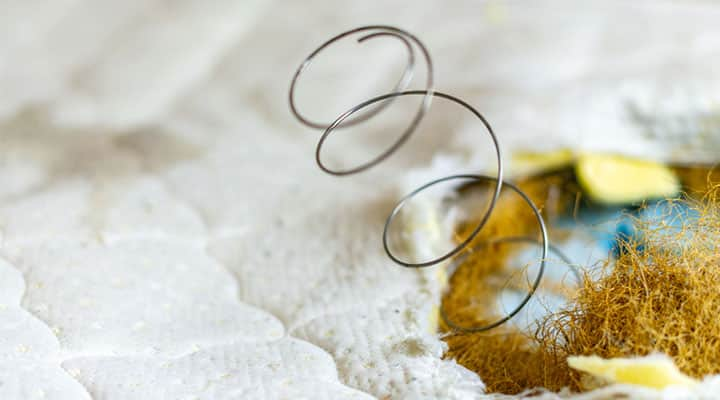
It's always good to leave a good impression—except when it comes to your mattress. If your body weight and shape has left a permanent impression in your mattress, it's time to get a new one!
Over the years, your mattress collects sweat, dirt and dead skin from your body and the hefty, padded support it was once offered breaks down, causing harm to not only your sleep, but your overall health.
Sleeping on an old mattress can cause discomfort throughout the day, and likely is stopping you from getting the restful night sleep you need. A good rule of thumb is to swap out your mattress every eight years.
Explore Our Best Sleep Supplements
DO: Stop scrolling
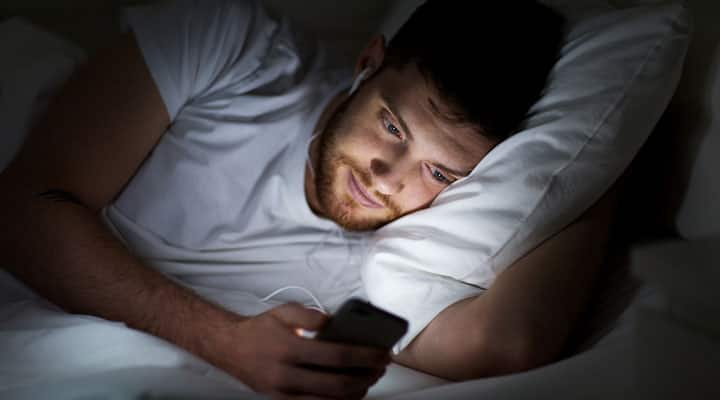
Lying in bed mindlessly scrolling through social media might be a tempting way to wind down at night, but doing so may be causing more harm than good to your sleep cycle. That's because the blue light emitted from your smart phone signals to your brain that it is still daylight—and thus your brain is not ready to shut down for sleep.
Not a big Facebook or TikTok user? This same rule applies to falling asleep in front of the television, too. If there's a show on at night that you really want to stay up to watch, you're better off recording it and watching it the next day. Staying away from screens for at least two hours before bedtime will greatly benefit the number of hours and quality of sleep you enjoy.
DO: Kick the caffeine
If you can't fall asleep, caffeine might be the culprit. A warm cup of joe is a great way to jumpstart your day, but it is the last thing you need before you go to sleep. Coffee, tea, soft drinks and even chocolate all contain caffeine, which can wreak havoc on your sleep cycles and keep you tossing and turning all night.
It's important to avoid caffeinated products at least six hours before you go to sleep. If you must have coffee or tea before you go to bed, opt for the decaffeinated version instead. Chamomile is always a great, calming choice!
DON’T: Eat a heavy meal before bed
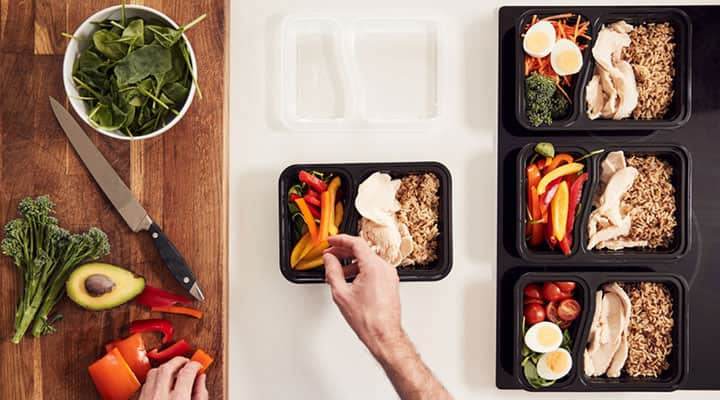
Foraging for food in your refrigerator before bed (or in the middle of the night) is not conducive to a good night's rest. Instead, make sure you are eating your final meal of the day at least three hours before bedtime. This allows your body time to digest and break down food, so it can then prepare for sleep.
What you are eating is just as important as when you are eating. No five-course tasting menus for you! Instead, focus on smaller portion sizes and on healthy, Mediterranean diet friendly foods like fresh fruits, vegetables, healthy fats and lean proteins.
DO: Try melatonin
Did you know that your body has an internal clock, known as circadian rhythms? Jetlag and irregular sleep patterns can throw those rhythms off, which results in restless nights of tossing and turning.
Keep your internal clock regulated by incorporating melatonin into your nightly routine so you can fall asleep easily. Make sure to speak with your doctor about taking melatonin to ensure you're taking the right amount. If you're wary about trying melatonin, there are other herbal sleep options you can try that also support a good night's sleep by promoting relaxation.
DO: Say adiós to alcohol

You had a long, hard day at work and want to unwind with a bottle of wine and your favorite book (or reality show) before bed. Unfortunately, if you are also looking to get a good night's rest, that bottle of wine might do more harm than good.
Alcohol before bed has been linked to irregular sleep patterns. Even worse, it messes with your melatonin production, leaving your circadian rhythms out of whack. So, that glass of wine might feel good going down…but if you don't want to be wide awake at 3 a.m., you might be better off sipping water.
References
- Ambardekar, Nayana, M.D. "Best Mattress for Lower Back Pain." WebMD, February 2021. https://www.webmd.com/back-pain/best-mattress-for-lower-back-pain.
- Dotinga, Randy. "Caffeine at Night May Disrupt Your Internal Clock." WebMD, September 2015. https://www.webmd.com/sleep-disorders/news/20150916/caffeine-at-night-may-disrupt-the-bodys-internal-clock.
- Elliott, Brianna. "The 9 Best Foods and Drinks to Have Before Bed." Healthline, August 2020, https://www.healthline.com/nutrition/9-foods-to-help-you-sleep.
- LeWine, Howard, M.D. "Does exercising at night affect sleep?" Harvard Health Publishing, Harvard Medical School, April 2019, https://www.health.harvard.edu/staying-healthy/does-exercising-at-night-affect-sleep.

